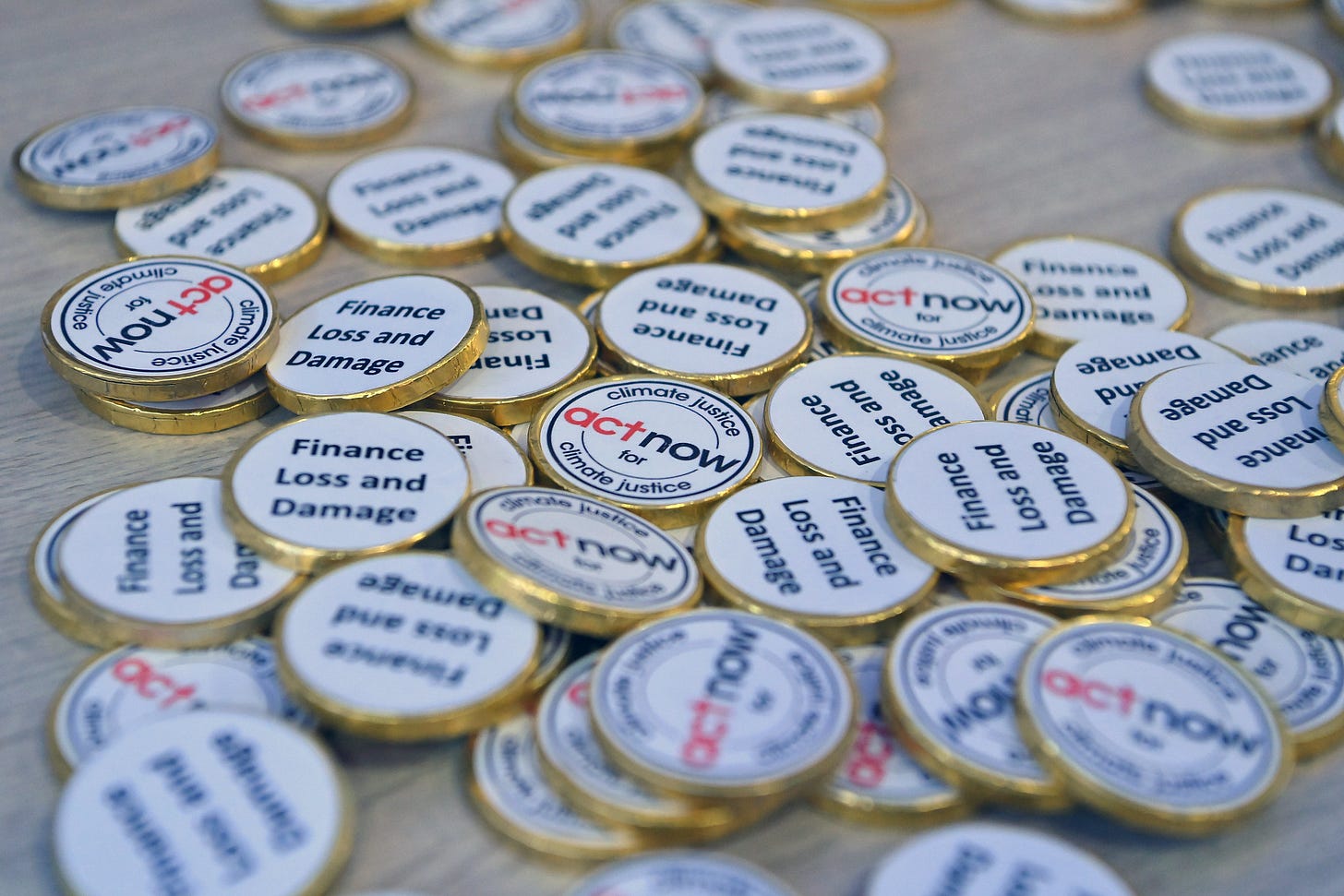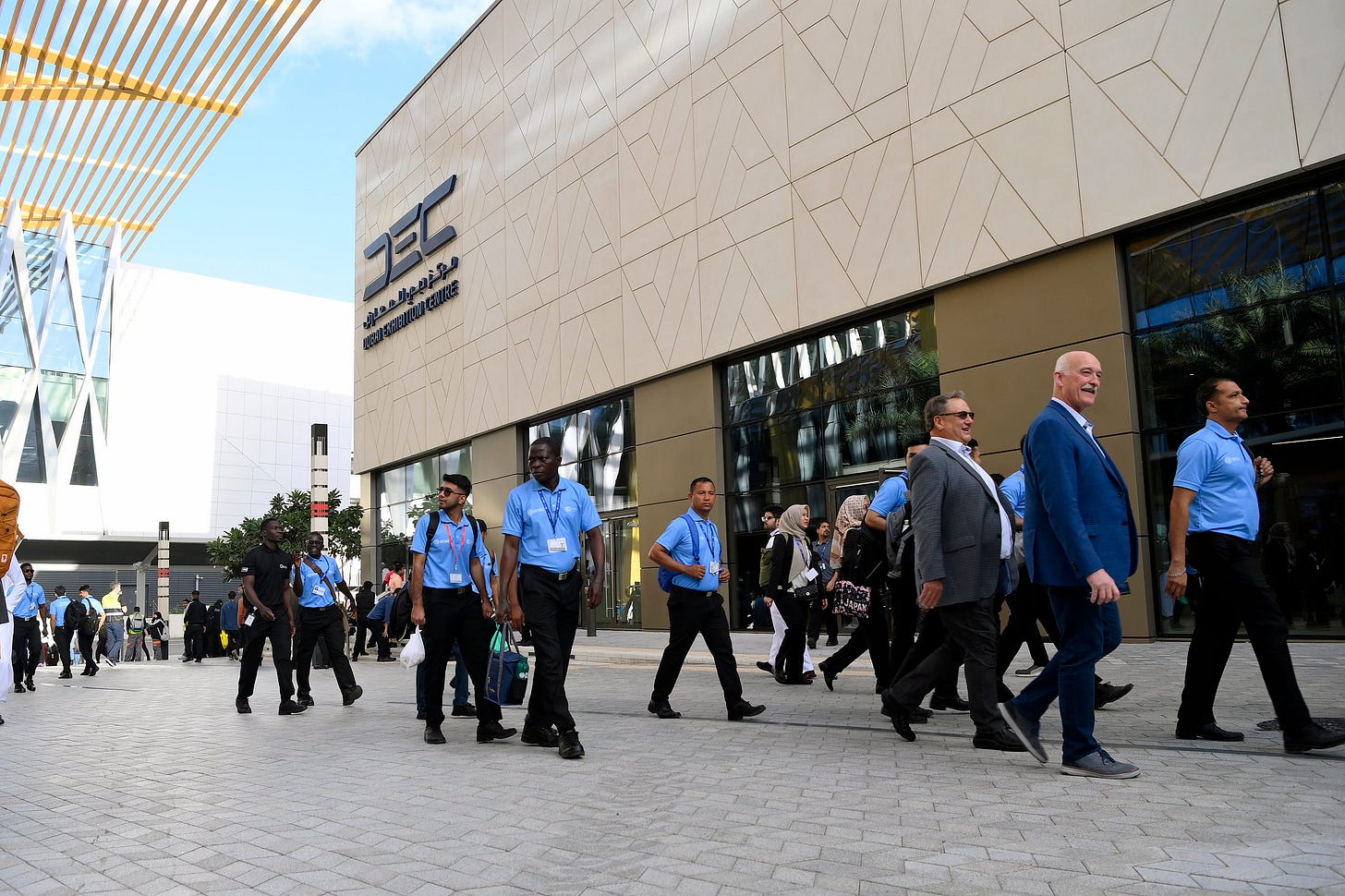“Will I see you at COP?”
For those of us professionally involved in climate action, November is a frantic month. COP28 — or the 28th Conference of Parties to the United Nations Framework Convention on Climate Change (UNFCCC) — gets underway this week in Dubai. Each year, attention on the world’s response to the crisis peaks during this time.
I will not be in Dubai, but I will follow COP28 closely by watching events online, reading media coverage and reports, and listening to those who attend. Partly, I will do this because it is my line of work, but I also like to believe it is out of my concern for the wellbeing of current and future generations.
Yet this gives me pause. How do fellow citizens around the world think and feel about the COP, especially those who don’t spend most of their time working in this field? For all its importance, the UN process feels at odds with an essential ingredient of transformation: mobilising the public.
What’s in a COP?
Negotiations between countries’ public officials are the beating heart of each conference. These typically go ‘down to the wire’ and conclude ‘at the eleventh hour’ with final decisions that create international norms and obligations. On the sidelines, commitments are made, alliances and initiatives launched, campaigns mobilised, reports published, and professional networks strengthened. Some leaders attend in person to bargain and make grand announcements.
Even as the conferences grow in scale and significance, the wider process appears to be losing legitimacy — at least as a way to restrain emissions and temperature rises.
Controversy has surrounded COP28 since early on. To no-one’s surprise, the United Arab Emirates has been accused of seeking deals to expand oil and gas supply chains while hosting the event. The president of the summit, Sultan al-Jaber, who also serves as CEO of the Abu Dhabi National Oil Company, has denied the allegations. The scene is set for a showdown over the future of fossil fuels: many other countries want a collective agreement on their phase-out. The UN is battling to reduce the influence of fossil fuel lobbyists over the talks even as the UAE has welcomed the involvement of private interests.
Conversely, it remains an important forum for Global South governments to press richer countries for financial support to cope with climate impacts; on this, the UAE has been praised for its leadership. Even if the negotiations stall, voluntary initiatives can keep up some momentum. Indeed, Christiana Figueres, former chief of the UNFCCC and architect of the Paris Agreement (negotiated at COP21 in 2015), finds hope in the ‘real economy' and business becoming the primary ‘motor of change’, as the costs of low-carbon continue to fall.
Disconnected
Ironically, the political machinations, finance, and technological solutions that make headlines are far removed from how most people relate to the climate crisis. Public awareness of the UN process is low. A survey by the Development Engagement Lab before COP26 found that over half of respondents in the US and Germany had not heard of the conference; while two-thirds of respondents in the UK said they had, half of those said they ‘don’t really know what it is about’. For comparison, majorities in most countries recognise that climate change is happening and say they are worried about it.
In fact, a call for public engagement is an important but often overlooked aspect of both the original Convention (Article 6) and the Paris Agreement (Article 12): an agenda known as ‘Action for Climate Empowerment’ (ACE). Through these and subsequent COP decisions, governments have committed to provide education and training, raise public awareness, ensure public access to information and public participation in climate action, and cooperate internationally on these objectives.
These crucial steps have been neglected. Six in ten people across 31 countries feel that their government does a bad job at informing them about climate change, according to an Ipsos survey this year (worth visiting for more insights). Researchers at the UK organisation Climate Outreach also highlight that the process of tracking progress against international climate goals — known as the Global Stocktake — has not been participatory, since many countries still lack the necessary institutions and strategies for ACE.
Claim a voice
In the participatory void this creates, it is hard for people to engage positively and proactively with the climate crisis. Activists plan demonstrations at and around the COP, despite the risks of doing so. Youth and indigenous leaders also share their perspectives and knowledge at the talks, at least in spaces they are invited to join. However, for better or worse, many people are not ready to embrace the concept of climate justice or do not feel represented by the more radical tendencies of the climate movement.
Among the ‘persuadable’ majority — those who believe climate change is happening but remain on the fence about climate action — the speeches, scandals, and skirmishes of the COP are likely only to conjure fear and frustration.

For climate politics to move forwards, we need broad and varied channels of communication between the public and political leaders, and approaches to societal debate that pose the question of transition in collaborative, not adversarial terms. In this respect, the climate crisis is a mirror that reflects the ill health of (electoral) democracy and the tightening grip of autocratic regimes around the world. Only when information is obscured and accountability is weak can governments and companies bamboozle their citizens and consumers with glitzy ‘solutions’ and assurances that nothing significant really needs to change.
I encourage you to find out what happens at COP28 in as much detail as you can stomach, although the best summaries will become available after the final gavel comes down. Being informed is a first step to greater agency.
But perhaps more importantly, you might spend time to reflect:
What would it look like for you to have a direct say over how climate action affects your life and your community? Who would be listening to you? What kind of society would that be?
Further resources
Keep this glossary of key terms in climate policy close at hand as you navigate the coverage of COP28, courtesy of Clara Murray and Sam Forsdick at Raconteur.
For an introduction aimed at people outside the climate space, but with great breadth and depth, listen to Climate Outreach’s deputy CEO Noora Firaq explaining “What is COP28 and why should we care?” (Grange Project, Episode 11).
Climate Outreach also have an excellent library of publications on public engagement and what Action for Climate Empowerment could look like in practice (although every country should tailor its own approach). Get inspired by these success stories from Egypt, the Carteret Islands, and Scotland.
Simon Kuper opines in the Financial Times (paywall) that many people will activate a new, softer, yet still harmful kind of climate denial when they hear news about COP28. Referring to the concept coined by Wolfgang Blau, he describes this as “a refusal to think about climate change because it’s too painful.”




